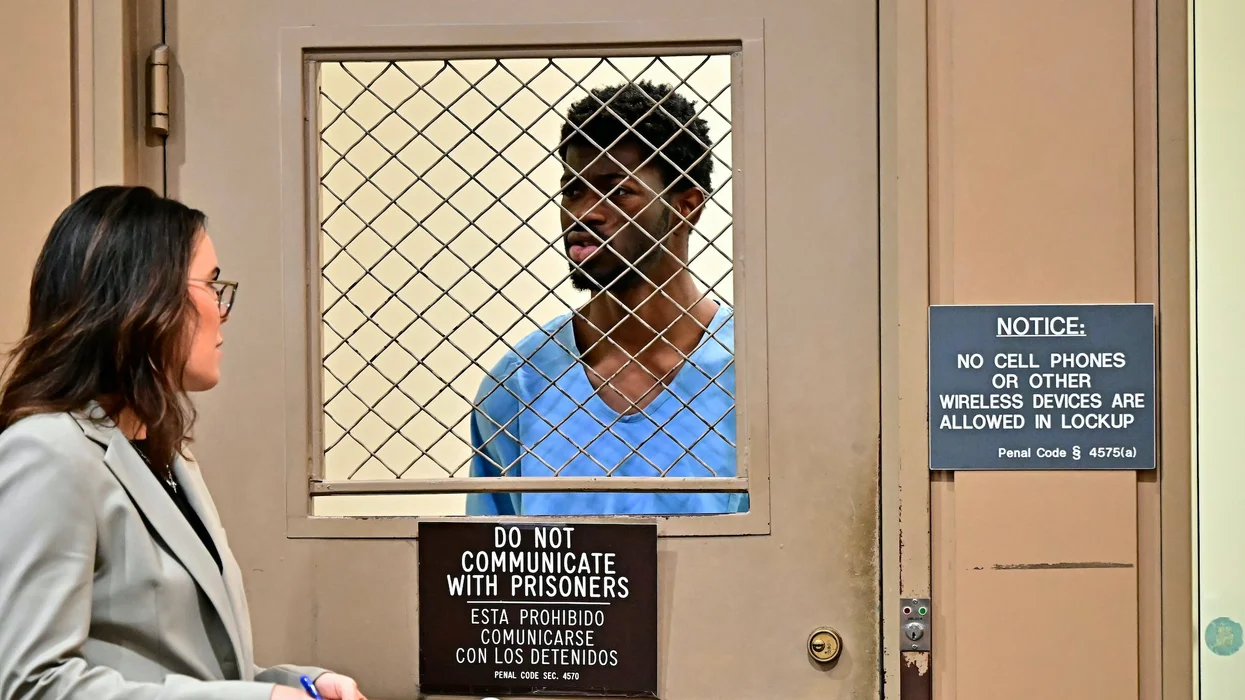
CAIRO (The Blaze/AP) -- Egyptians turned out in large numbers Wednesday for a second round of parliamentary elections with Islamists looking to boost their already overwhelming lead and liberal voters concerned the outcome will push the country in a more religious direction.
Two Islamist blocs won an overwhelming majority, close to 70 percent of seats contested, in the first round on Nov. 28-29, according to an AP tally compiled from official results. The secular and liberal forces that largely drove Egypt's uprising failed to turn their achievement into a victory at the polls and were trounced.
The final two rounds of voting are not expected to dramatically alter the result and could strengthen the Islamists' hand.
"We have to try Islamic rule to be able to decide if it's good for us," said 60-year-old voter Hussein Khattab an accountant waiting to vote at a polling station near iconic pyramids in Giza province on the western outskirts of Cairo. "If not, we can go back to Tahrir," he said, referring to the Cairo square that was the focus of the uprising in January and February.

He said he planned to vote for the Muslim Brotherhood, the country's most organized and well-known party which was the big winner of the first round with about 47 percent of contested seats.
The election is the first since longtime authoritarian leader Hosni Mubarak's Feb. 11 ouster and is the freest and fairest in Egypt's modern history. The parliament will be tasked, in theory, with overseeing the drafting of a new constitution. Still, its actual role remains unclear, as the military council that has ruled since Mubarak's fall has pushed to limit its powers.
So far, many voters have just been happy to participate in a real election after decades of fraud and vote-rigging by Mubarak's party. Lines were so long at some polling stations that vendors set up shop to sell tea and snacks to voters during their wait.
The Islamists' strong showing has raised many questions about the future of a country that has faced deteriorating security and economic free fall since the uprising. The two dominant Islamist groups - the Brotherhood's Freedom and Justice party and the even more conservative Al-Nour bloc - together took about 68 percent of the seats up for grabs in the first round.

The Brotherhood faces its stiffest competition from Al-Nour, the party of Salafi Muslims whose ultraconservative interpretation of Islam is similar to that practiced in Saudi Arabia. Al-Nour bloc won an unexpectedly strong 21 percent of seats in the first round.
The Brotherhood is sending mixed messages about how strongly it will push to limit personal freedoms such as women's dress. Some have tried to assure the public they do not intend to strictly impose Islamic law, or Shariah. But other Brotherhood leaders have indicated a more hard-line direction, for example by suggesting tourists don't need to drink alcohol while they are here.
The Salafis say openly they will push for Islamic law to be strictly enforced, and some have railed against tourists who wear bikinis at beach resorts popular with foreigners. At a recent campaign rally in the coastal city of Alexandria, Salafis covered mermaids statues with cloth.
Some voters worried about the growing clout of Islamists turned out to support the liberal and secular parties that performed poorly in the first round. The liberal Egyptian Bloc came in third with nine percent.

"I was worried about all their statements about sex segregation, tourism and beaches," said Giza voter Omniya Fikry.
Egypt's economic situation has declined rapidly, with unrest scaring away foreign investors and tourists, one of the country's prime sources of income. Prime Minister Kamal el-Ganzouri broke into tears in front of journalists this week while talking about the economy, calling it "worse than anyone imagines."
Some fear Islamist success will hamper recovery.
Still, Islamist parties appealed to many voters who believe they'll run a clean government. Public anger over rampant corruption under Mubarak was a major impetus behind the uprising. The Islamist groups are also known to many for providing social services, especially to the poor, something that Mubarak's regime failed to offer.
In city of Suez on the southern end of the Suez Canal, voters complained of neglect by the Mubarak regime and hoped the new leadership would fix the economy.
Voter Ahmed Salim, 48, came to vote with his daughter, who wore a face veil that left only her eyes showing. He said he whole family supported the Salafis and just wanted to see an end to corruption.
Throughout the country, activists for all main parties violated the legal ban on campaigning on election day by distributing flyers outside of polling stations. Throughout the vote, the Muslim Brotherhood has benefited from a highly organized campaign, and its activists have been the most visible.
Many voters said they had little knowledge about the parties or candidates - even the ones they voted for, prompting many to worry that last minute campaigning will easily affect confused citizens, especially in a country where one-third of the population can't read.
Outside a polling station in Giza, a bearded man grabbed an elderly man on his way to vote and told him "Al-Nour party, OK?"
In another polling station, a reporter from The Associated Press saw a judge overseeing the vote fill out a ballot for an old man. When the judge noticed the reporter, he shouted, "Why are you here, old man, if you don't know who to vote for?"
Final results for 150 seats from the first round have been announced. The second round, which ends Tuesday, will decide 180 seats in the 498-seat People's Assembly, the parliament's lower house.

The second round runs for two days through Thursday. The final stage is Jan. 3-4. Rounds are divided up by province, with nine of the 27 provinces voting in each round.
It remains unclear what powers the new parliament, expected to be seated in March, will have.
In theory, it is supposed to form a 100-member assembly to write a new constitution. But the military council that has ruled since Mubarak's fall says the parliament will not be representative of all of Egypt, and should not have sole power over the drafting of the constitution. Last week, the military appointed a 30-member council to oversee the process.
The Muslim Brotherhood has refused to participate in the council and is pushing for a stronger role for parliament.
Since taking power, the military has sought to protect and expand its special place in the Egyptian state, saying at one point that it would choose four-fifths of the members of the constitutional committee. It is also trying to protect its budget from oversight by a civilian body.
Nearly 19 million of Egypt's 50 million eligible voters can participate in the second round.







